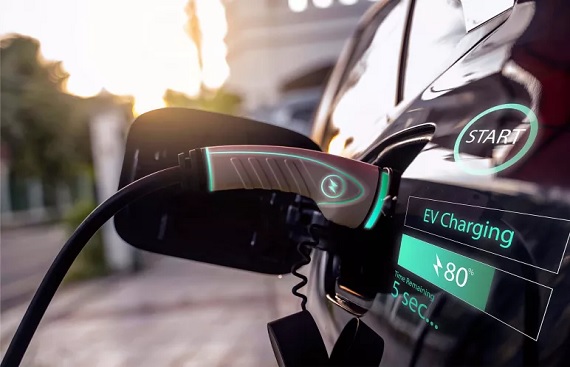Union Budget 2024: Expectations to Charge up and Propel EV Sector
By
siliconindia | Wednesday, 31 January 2024, 10:50 Hrs

Anticipation is mounting as the presentation of the 2024 Union Budget approaches, with expectations that it will strongly align with the country's renewable energy targets. The upcoming budget is anticipated to play a crucial role in accelerating India's commitment to reducing carbon emissions and fostering a climate-resilient economy. The electric vehicles (EV) industry experienced remarkable success in the previous year, surpassing a million in sales for the second consecutive year. This achievement is attributed to the government's favorable policies towards clean mobility. As electric vehicles emerge as the future of transportation, the industry looks forward to significant announcements in the budget that will further propel the adoption of EVs in the country. The industry is particularly hopeful for support in the form of subsidies, tax benefits, and financing solutions, expecting these measures to drive transformative change in the EV sector this year.
The industry is optimistic about the government extending and fortifying the Faster Adoption and Manufacturing of Electric Vehicles (FAME) subsidy scheme to include not only cars but also two-wheelers. A report from December 23 suggests that the government is hesitant to expand the subsidy to electric two-wheelers, contending that major manufacturers in this segment do not require such support. Nevertheless, the industry is urging the inclusion of two-wheelers in the scheme, emphasizing its significance for the continuous growth of the electric vehicle (EV) ecosystem. The discontinuation of the subsidy for two-wheelers is anticipated to result in a significant 17-20% increase in vehicle costs. Industry stakeholders argue that this extension would not only lower manufacturing expenses but also attract investments, stimulate investor interest, and expedite the overall development of the sector. Such an extension is seen as a means to make EVs more accessible to a broader demographic, fostering widespread adoption of environmentally friendly transportation by ensuring affordability and inclusivity, in addition to enhancing fuel security.
The industry is anticipating regulations aimed at motivating businesses to reduce their carbon emissions. In the upcoming budget, there is a hope that measures will be introduced to empower industries and businesses in their green transition through targeted incentives. These incentives may include fiscal measures like interest subsidies on bank loans for the purpose of upgrading to sustainable manufacturing processes. Such initiatives are expected to facilitate the widespread adoption of resource-efficient and low-carbon solutions, ultimately contributing to a reduction in emissions.
Moreover, this is likely to spur heightened interest in the carbon credits market, particularly for electric vehicle (EV) fleets and EV charging companies, providing them with additional sources of income and boosting overall adoption. Additionally, the industry is looking forward to potential reforms in customs and positive changes in the Goods and Services Tax (GST) rules. Specifically, there is a desire for a lower tax rate on Electric Vehicles (EVs) and their components, such as lithium-ion battery packs and cells, which currently face an 18% GST. The industry advocates for a reduction to 5%, envisioning that this adjustment would make EVs more financially appealing.
Establishing a robust EV charging infrastructure is crucial for the sustained growth of the electric vehicle (EV) industry in India. To expedite the development of an extensive charging network spanning tier II and III cities as well as highways, the industry seeks fund allocation, incentives, and supportive policies. The focus should be on creating charging stations and park-and-charge hubs along highways. Ensuring open data standards and APIs for seamless charging is a priority, promoting interoperability and fostering the development of a cohesive software ecosystem. The industry also anticipates incentives, such as tax rebates, to encourage investment in research and development for software solutions that enhance advanced charging capabilities. This approach aims to provide EV drivers with seamless access to any charging station, addressing a critical barrier to widespread EV adoption.
The industry anticipates the announcement of policies in the budget that specifically address licensing, safety standards, and insurance norms tailored for electric vehicles. Moreover, a potential improvement in profitability during the initial setup phase of charging stations could be achieved by eliminating or reducing fixed demand charges, particularly when the stations are not yet in use. Presently, these fixed demand charges must be paid monthly, even in the absence of customers. Additionally, the industry looks forward to the implementation of a cap on infrastructure costs related to establishing charging stations on highways or remote areas. The current high capital expenditure for pulling wires over considerable distances is seen as a significant barrier that could be addressed through such measures.
